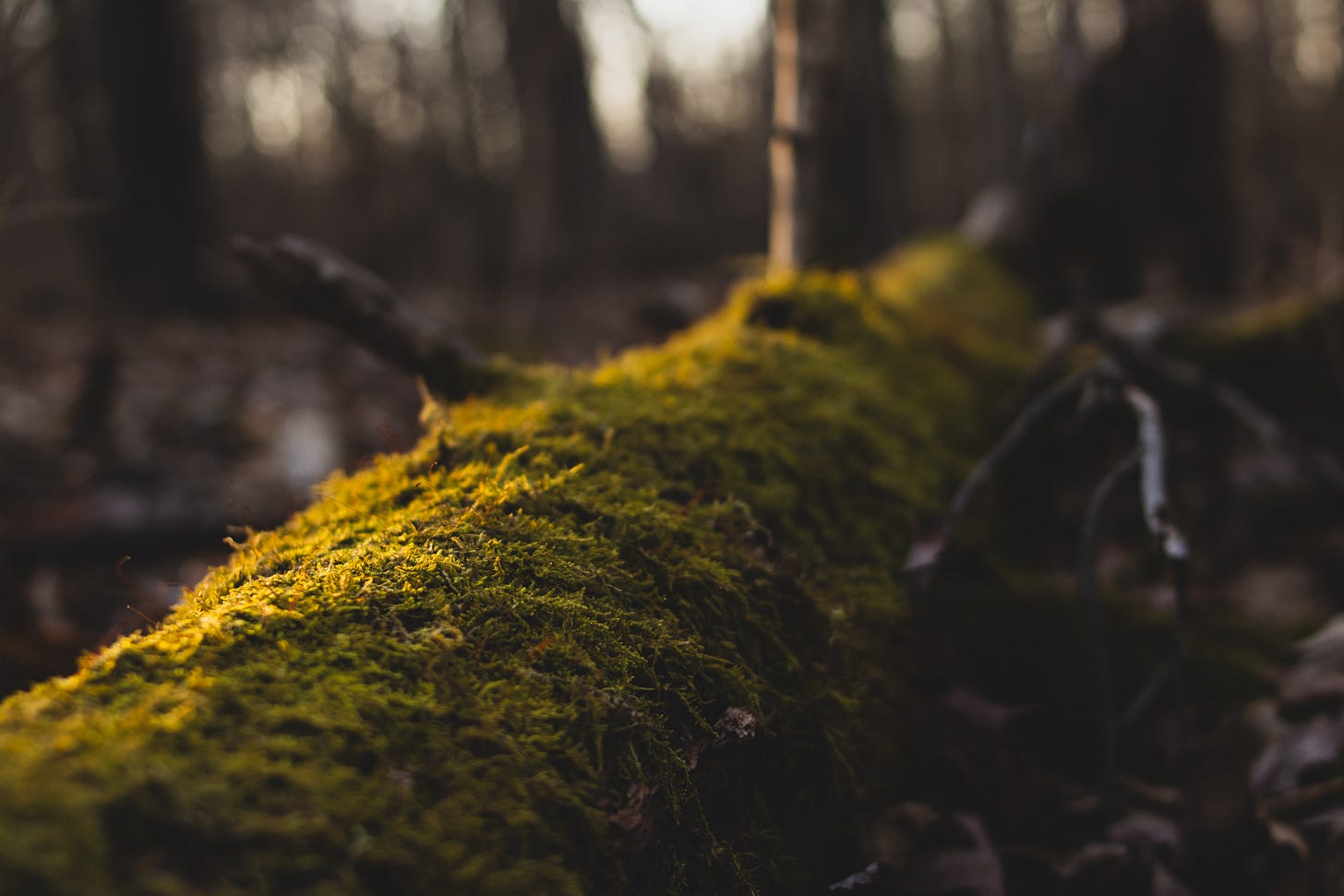The Eco-Update #6
Dispatches from the planet
I've got a few updates here. One is that Brief Ecology is growing! The newsletter just recently crossed over 260 subscribed readers, which is about 255 more people than I ever thought would read this. So thank you to everyone who's reading.
Since there seems to be growing interest, I want to expand the newsletter and try some different kinds of articles. So, a few new things are coming down the pipeline:
The Eco-Update will be expanded into a standalone newsletter, going out every other week.
Deep-dives into specific topics will continue to go out 1-2 times a month
Eco-Talks: I'm working on putting together some interviews with other scientists/academics working in ecology, geography, and related fields, so keep an eye out for that.
The Eco-Update, topical deep dives, and Eco-Talks will all remain free to read.
Lastly, I'm considering offering additional newsletters to paid subscribers, on a semi-weekly basis. These newsletters would contain updates on my own research here at Penn State, occasional thoughts on recent developments or new research ideas, potential ramblings about academia and science in general, and new topics I'm thinking about for upcoming newsletters. If that interests you, you can use the “pledge your support” button to pledge a paid subscription. I won't be turning on the paid subscriptions right away, but if there's enough general interest, I'll start putting these additional newsletters out. The primary motivation here is to make Brief Ecology sustainable for the long-term. Since I do this on the side, it eats up a chunk of my spare time/resources. Getting a few of those resources back would go a long way to keeping Brief Ecology in production. That's all. Thank you for your attention during this infomercial.
A word on what’s happening
I want to dedicate some newsletter space to talking about what's happening at universities across the country right now. Apart from the continuing and devastating cuts to research funding, the federal government is literally kidnapping and deporting international students.
You may have seen the recent video of ICE agents wearing masks and plain clothes disappearing Rumeysa Ozturk off the street. It's incredibly difficult to watch, because you can hear her terror and confusion, but it's also critical that we acknowledge what is going on. Rumeysa is not the only person to be illegally arrested in this way, there have been several others. Mahmoud Khalil’s wife is 8 months pregnant as she fights in court for her husband’s release.
These people are here legally, studying at universities, and the government is kidnapping them without warrants and without even filing any charges against them (which would be impossible since these people haven't committed any crimes). What they have done is expressed their support for Palestine. That's it. The US government is arresting people, moving them across the country without any semblance of due process, and keeping them locked away in cages. All for simply expressing their freedom of speech.
It's exactly as horrifying as it sounds. We cannot be silent about this. We cannot forget about the people who are detained in deportation facilities. And we cannot allow these fascist actions to continue.
The Eco-Update #6
I have a new paper out in Nature Review Biodiversity
I recently had a short comment article published in Nature Reviews Biodiversity, which you can read here. Without getting too deep into the theoretical topics of the article, what I discuss is that many ecological studies are finding contradicting results when trying to link ecosystem productivity to biodiversity. The argument I make is that these contradictions originate in from a long debate within theoretical ecology, which revolves around the question of if ecosystems are the sum of their parts (organisms), or if ecosystems themselves are entities with properties separate from their parts. Scientists continue to find ecological different patterns at different scales, which I believe suggests that ecosystems are *both* equal to and greater than the sum of their parts. I actually take this further to claim that *any* ecological system is a subjective category artificially created, thus we will always find contradictory results, and environments can only be understood in their spatial and temporal contexts. If I've lost anyone here don't worry, it's as abstract as it seems, and really just highlights how much we don't know about nature (whatever that is).
New research on terrestrial ecosystem carbon storage
A new study sheds light on how the carbon stored in terrestrial (land) systems is distributed across different pools. Carbon is stored in the living biomass (for example, the wood of trees) within terrestrial ecosystems, but also in the soil and other nonliving components. It's been commonly assumed that the majority of the terrestrial carbon pool is in the living biomass pool, but this new study suggests that a much larger proportion of carbon is stored in nonliving pools than was previously known. This new information could improve global CO2 models, but may also have implications for how these systems are managed. In forests specifically, carbon accounting estimates should account for the greater amounts stored in soil and harvest wood in long term products.
The Trump administration is increasing logging on federal lands
The Trump administration has issued orders to increase logging in forests on federal land. The prioritization of harvesting timber over protecting the other ecosystem services these forests provide will have detrimental impacts on air and water quality, carbon sequestration, and endangered species. The administration is claiming that this logging will reduce wildfire risk, and while there is certainly a need for improving forest management and addressing wildfire, it's incredibly safe to assume none of that will be the goal of the administration given their attacks on science. The primary objective here will be resource extraction in order to pay for the tariffs levied against natural resource imports. These changes will not improve the habitat, environment, or quality of life of any Americans.
States are coming together to build sustainable transportation
In light of the Trump administration eliminating federal funds for bike lanes, the states of Minnesota, California, Illinois, Maryland, Michigan, New York, and Pennsylvania are coordinating a national organizing effort called the Clean Rides Network. The states in the network are pushing legislation that requires projects that will increase vehicular traffic to have corresponding projects that will reduce it (such as new bike lanes or bus routes). These changes are already having positive impacts on urban air quality and health in states where they've been implemented, like Colorado.




